The Dementia Clock is a helpful device which is primarily created for people with dementia, Alzheimer’s disease, or memory loss. Its primary audience also includes those who work to create a supportive environment for people with dementia, such as their carers, family members, and friends.
Experiencing confusion or disorientation about the passing of time is a common symptom of dementia. Therefore, this clever device provides crystal-clear times, days of the week, and date displays.
The dementia clock is an effective tool for helping dementia patients to maintain routine and structure in their daily lives. This is because providing a clear display of the time and date can help to lower anxiety, as well as enhancing the general quality of life.
These clocks allow individuals to orient themselves and become less dependent on others. Additionally, they can assist them in remembering crucial tasks. For instance, when to take their medications or anticipate visitors.
Our product analysis has examined some of the top dementia clocks on the market. It is important to note that advanced features such as alarms, reminders, and nighttime dimming are standard in these products.
These clocks are created to be user-friendly, meaning that they come with simple instructions to make them accessible to everyone. These clocks significantly contribute to the well-being and dignity of dementia patients, offering a sense of control and independence.






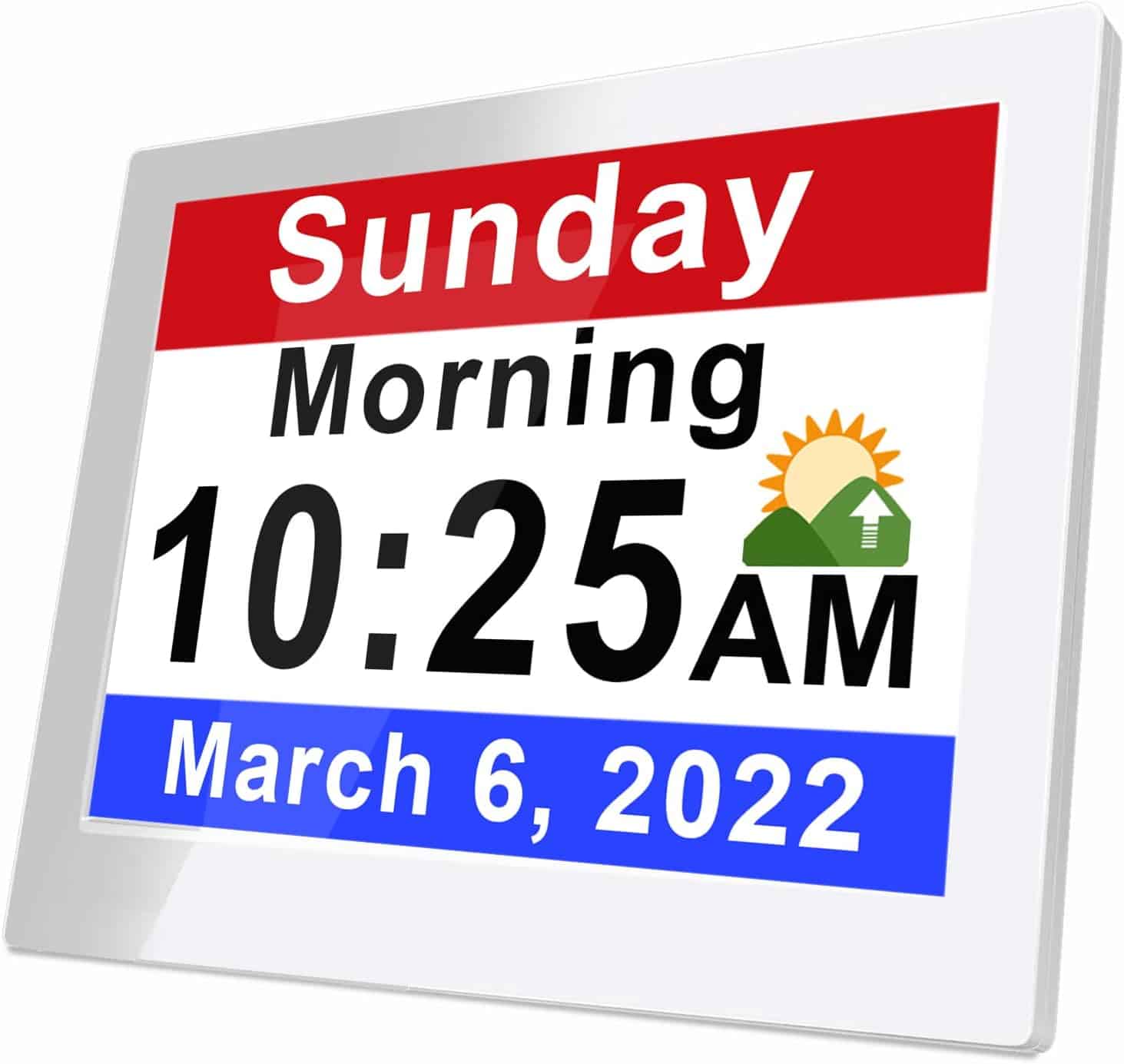
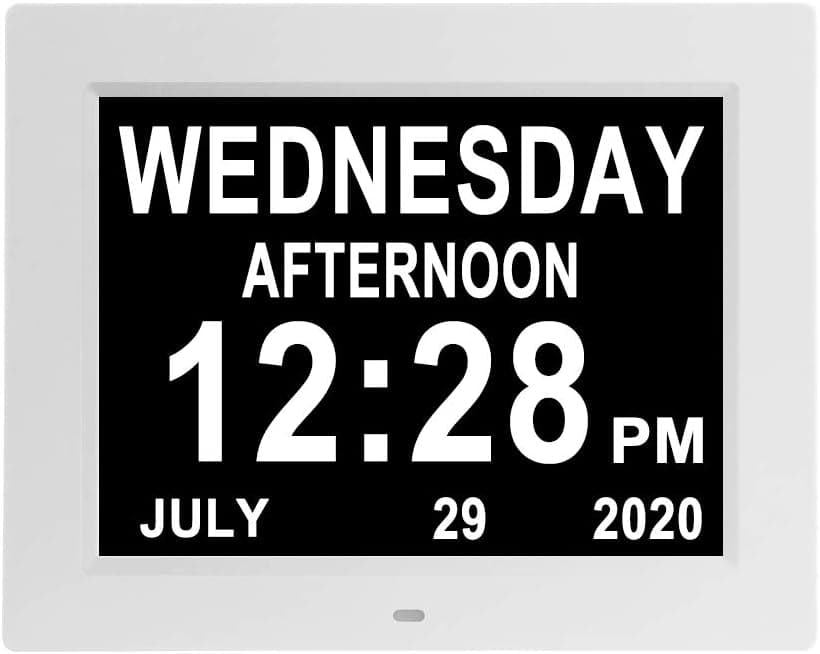
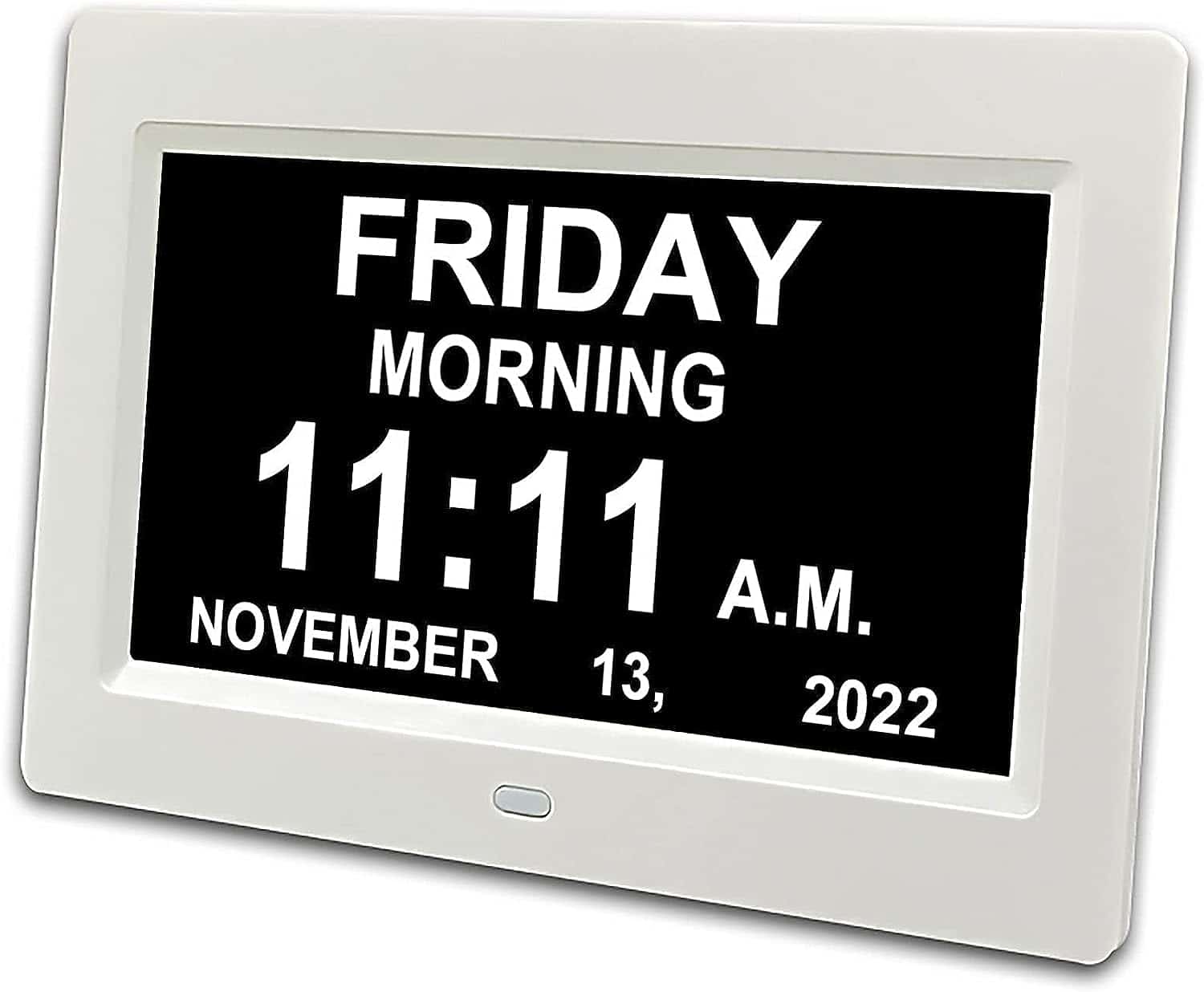
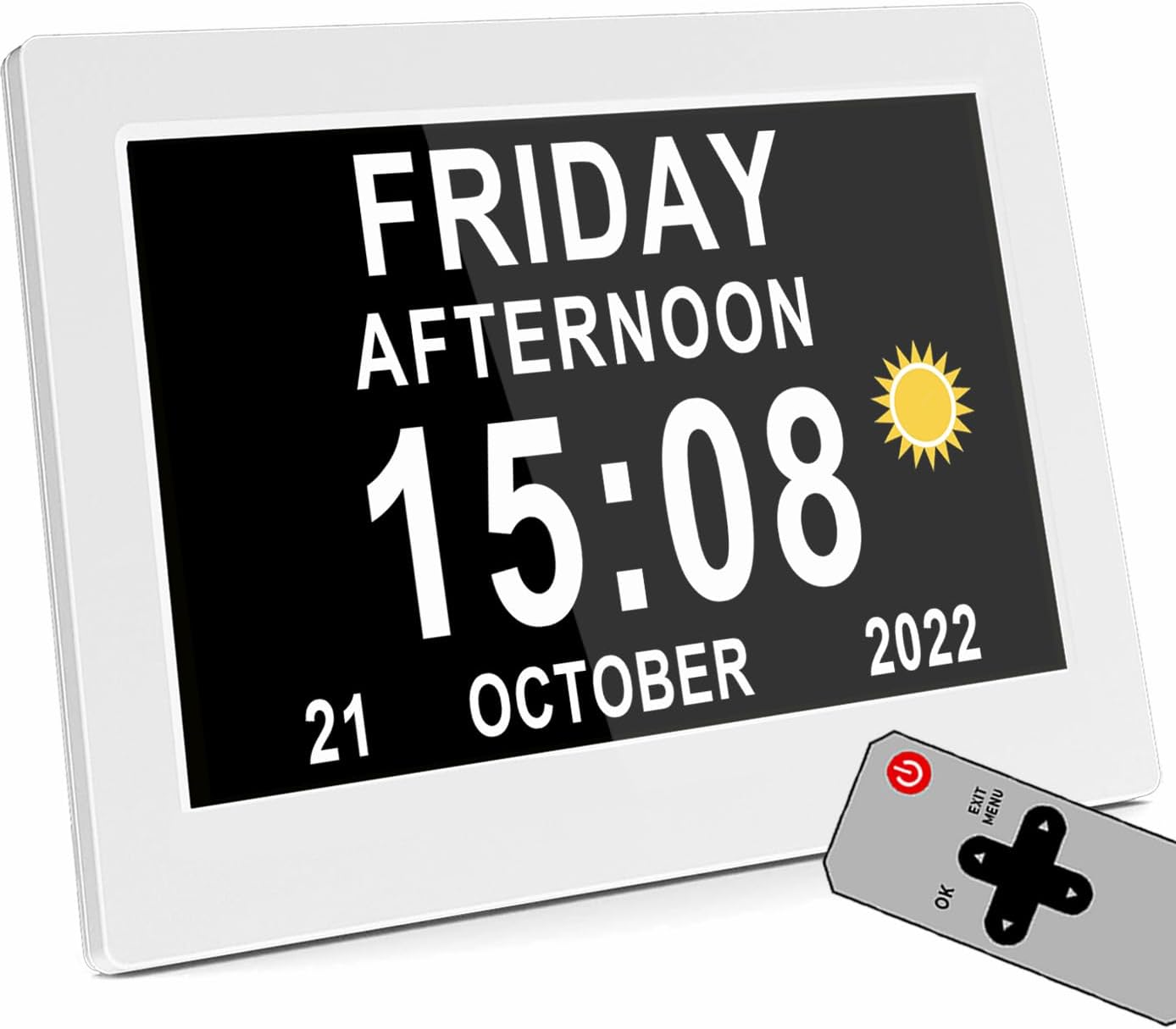
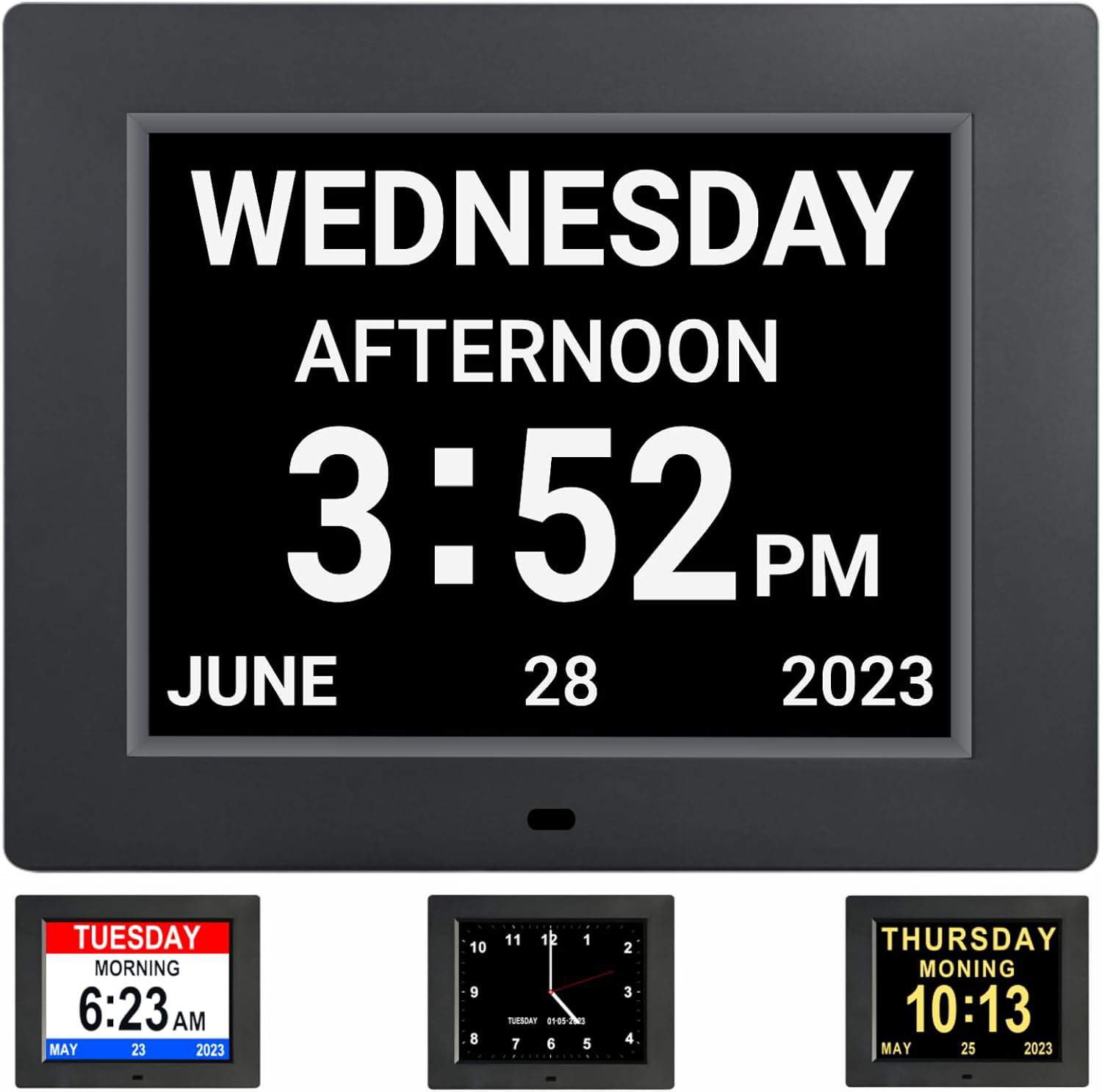
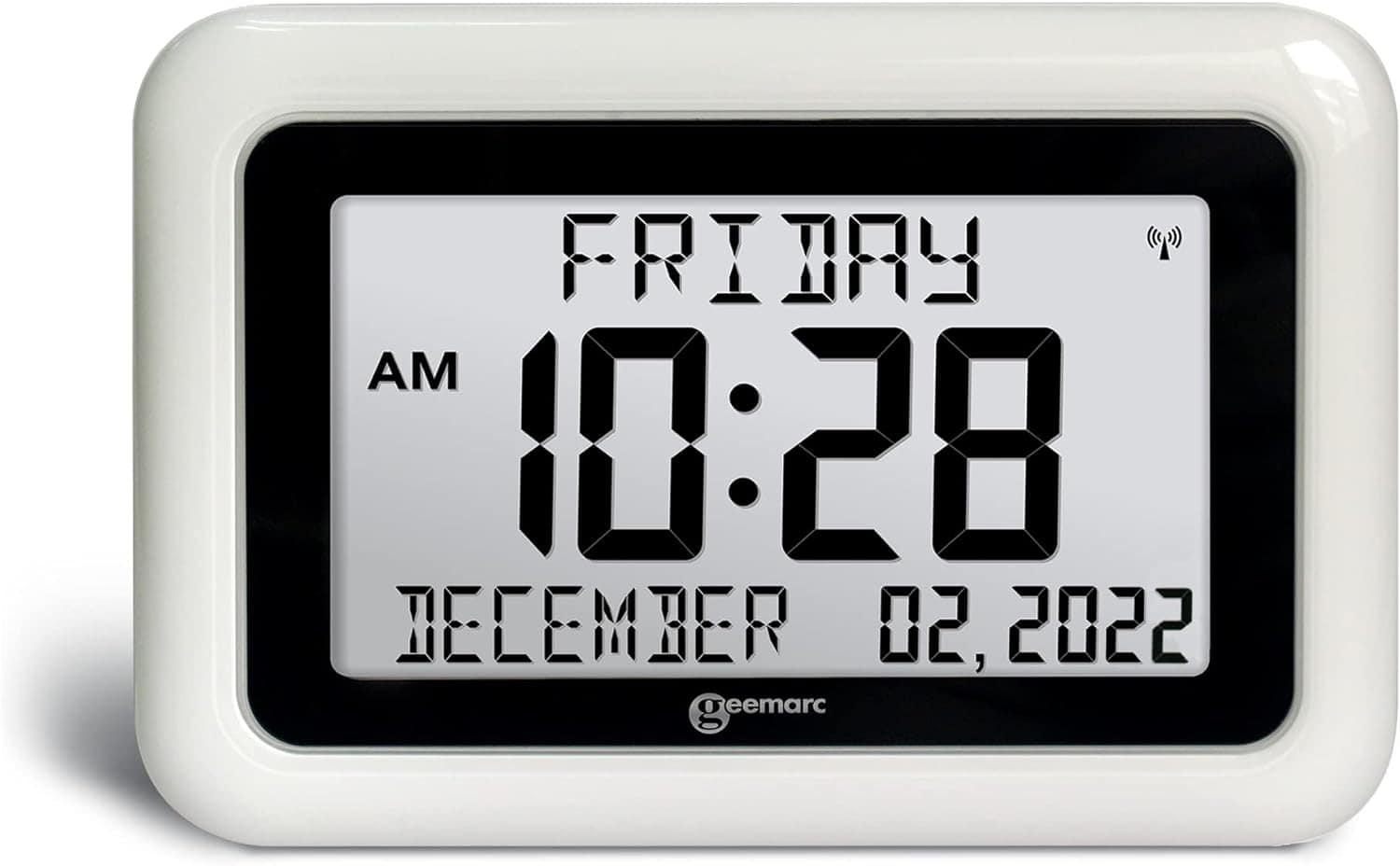
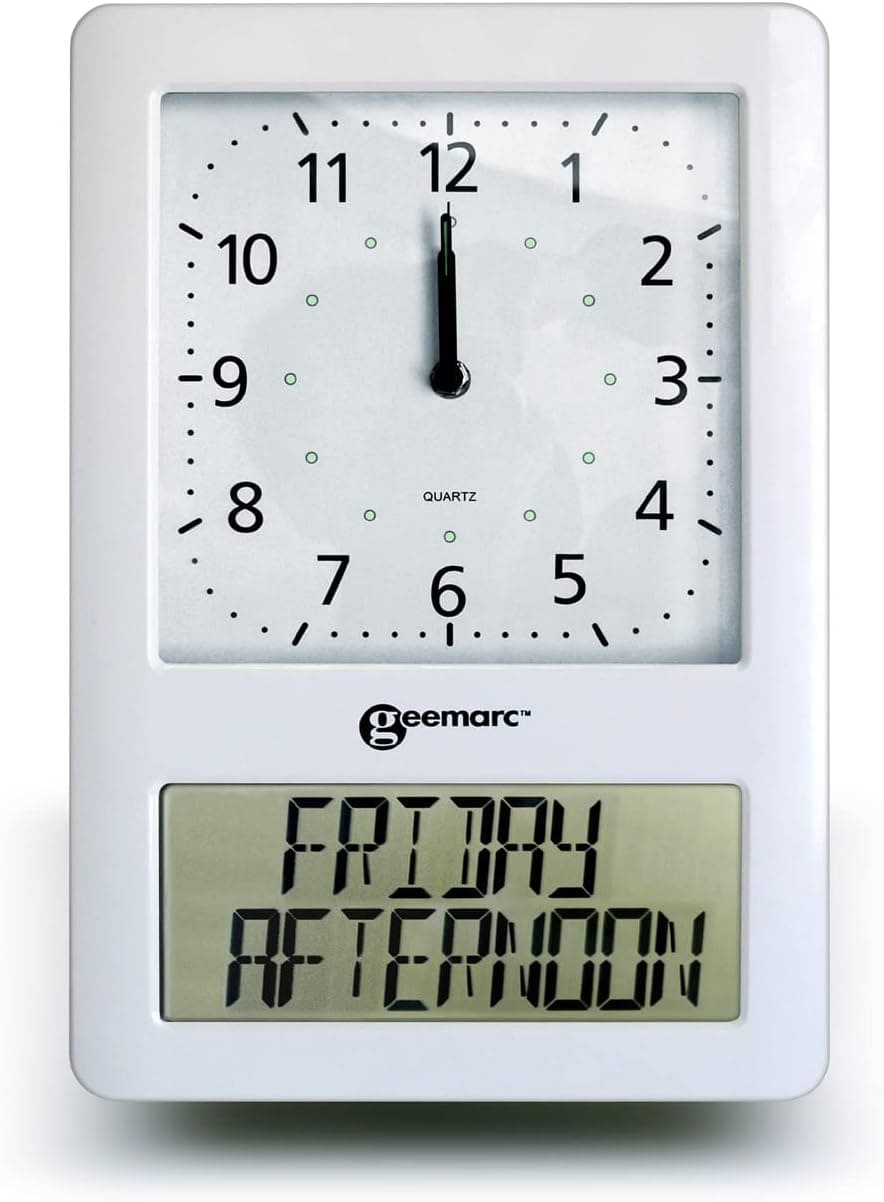
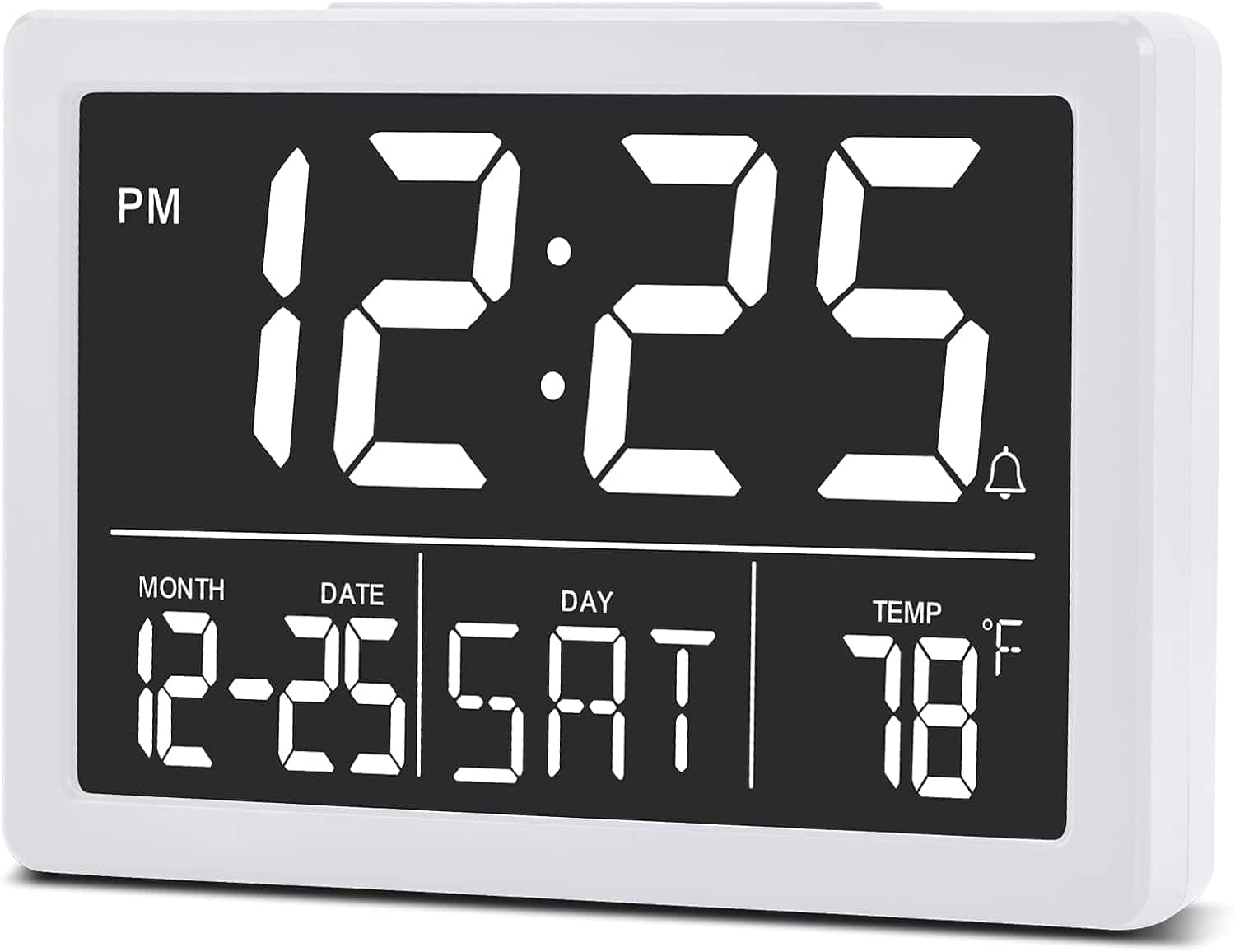
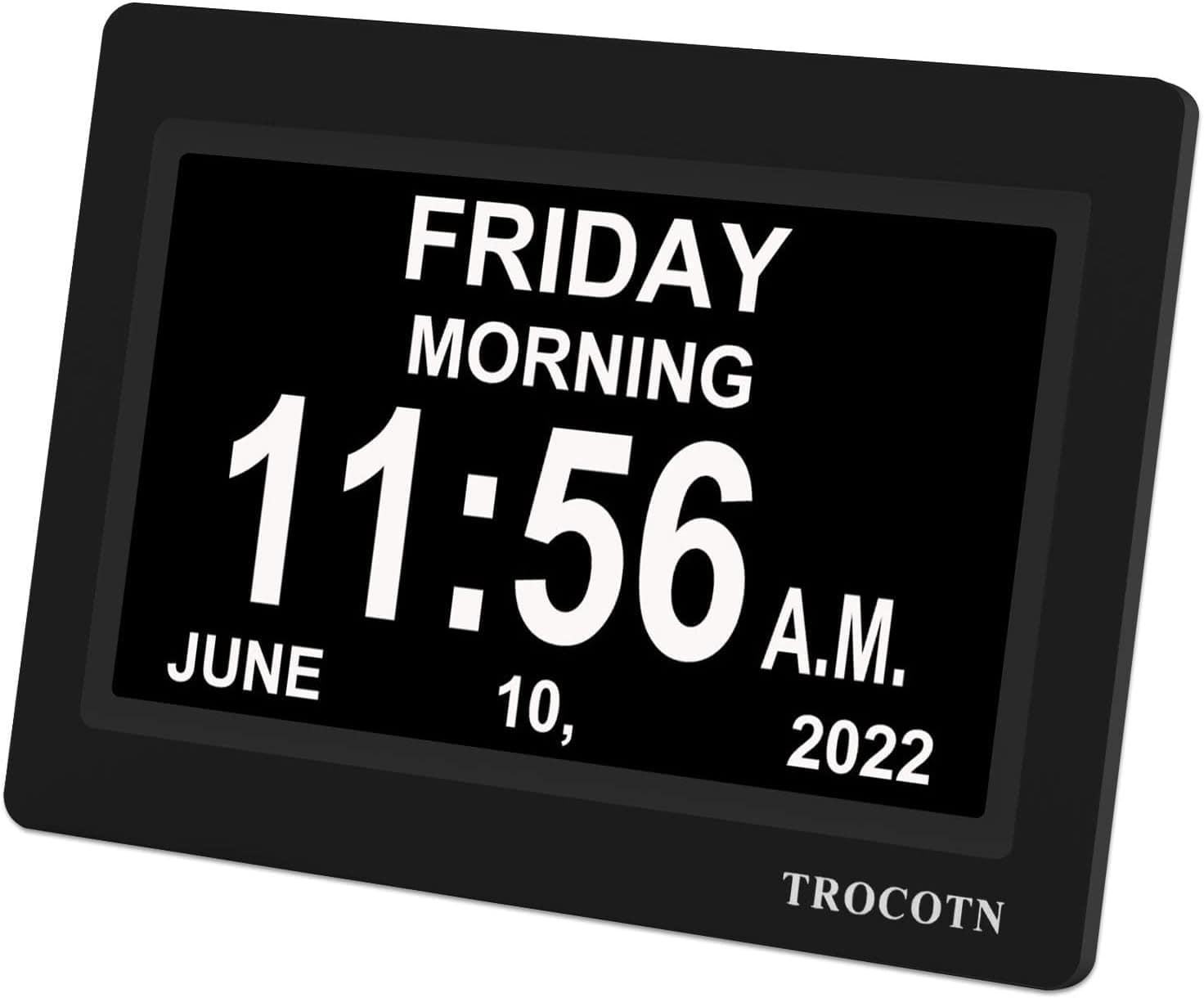
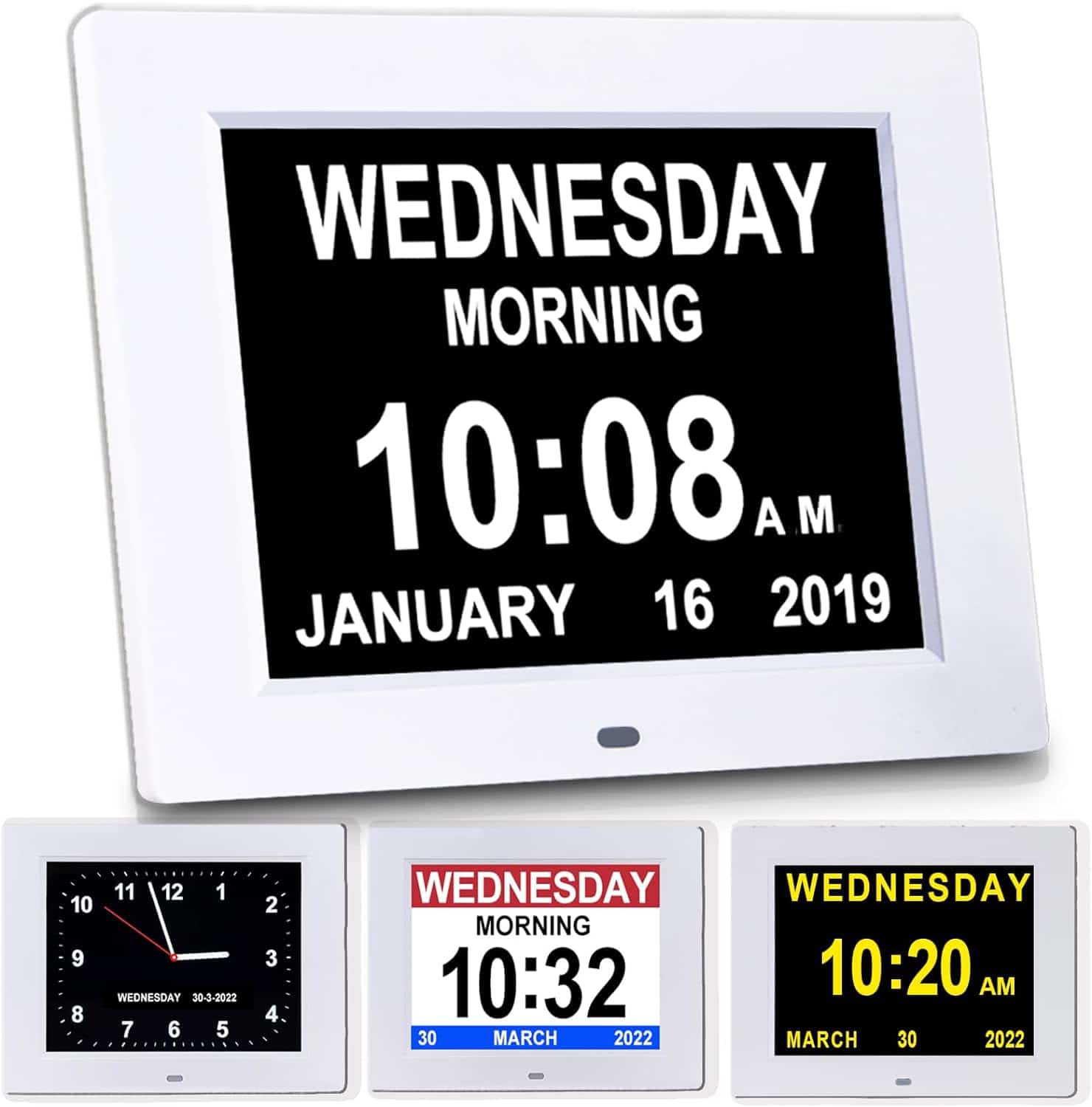
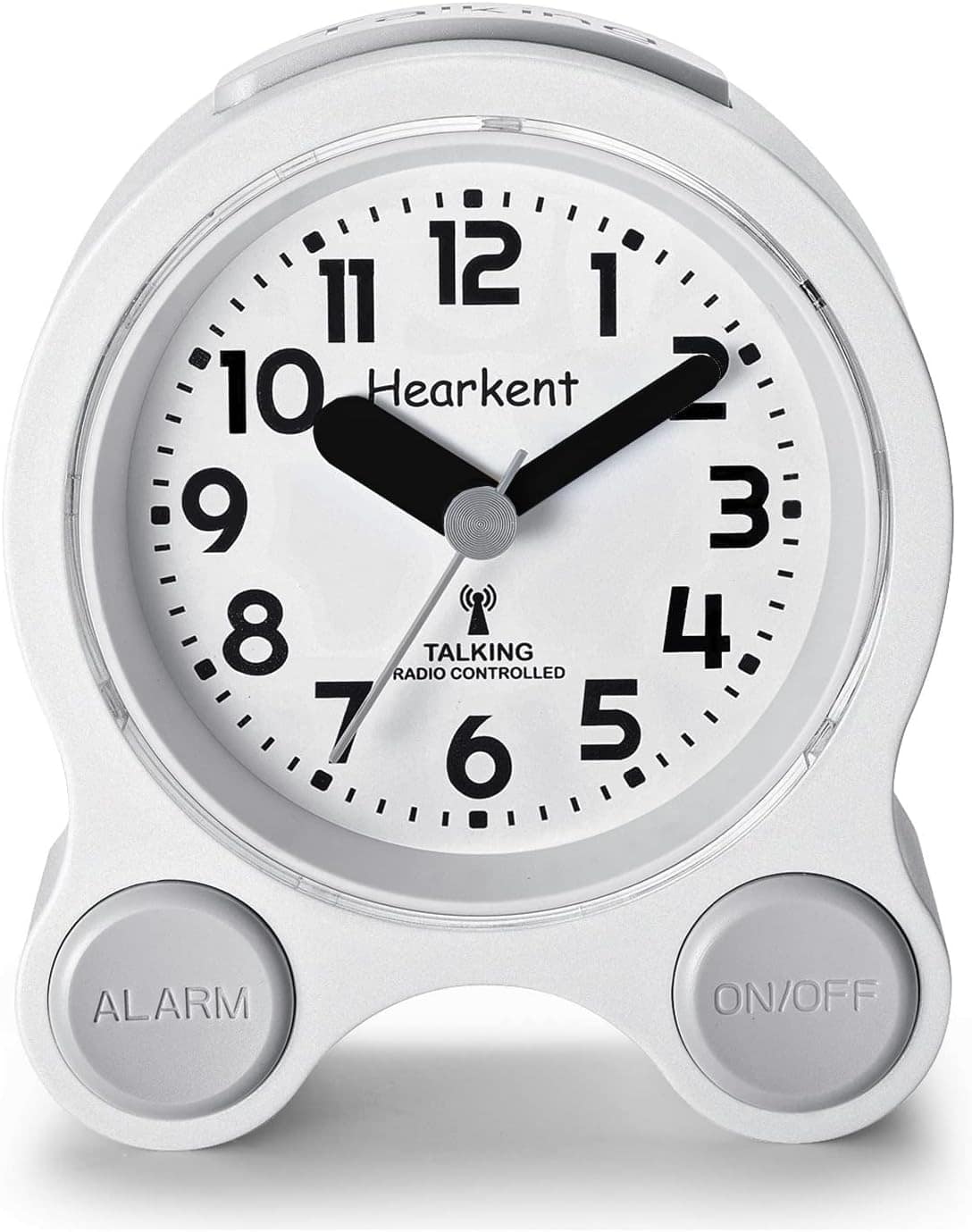

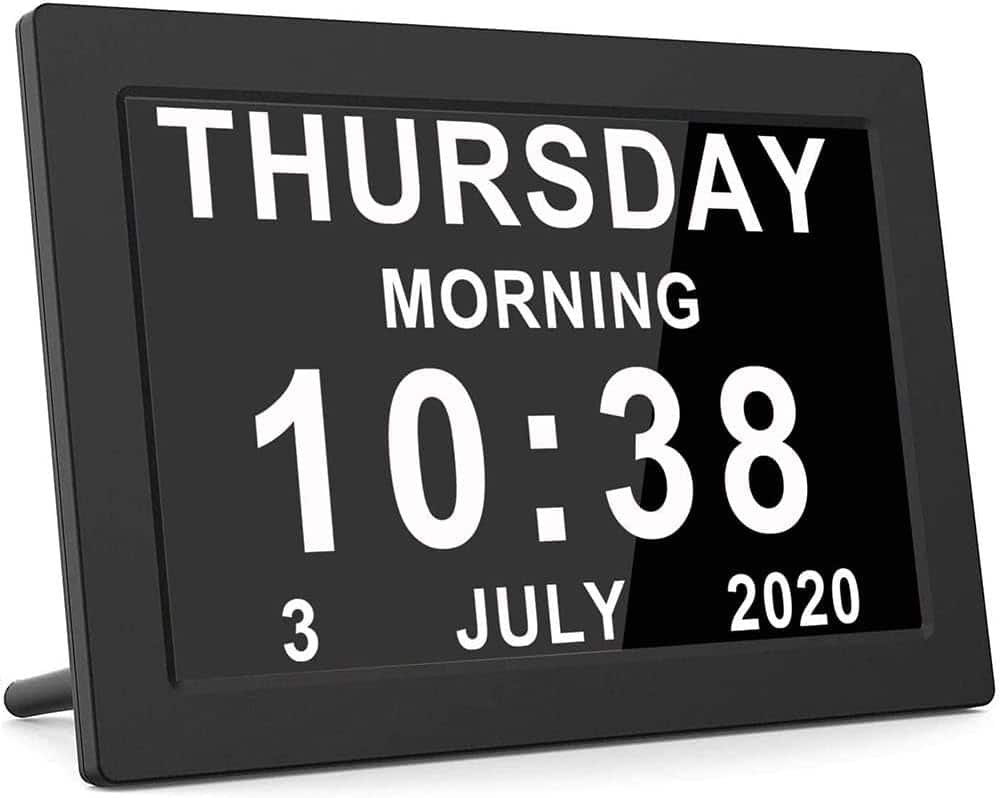
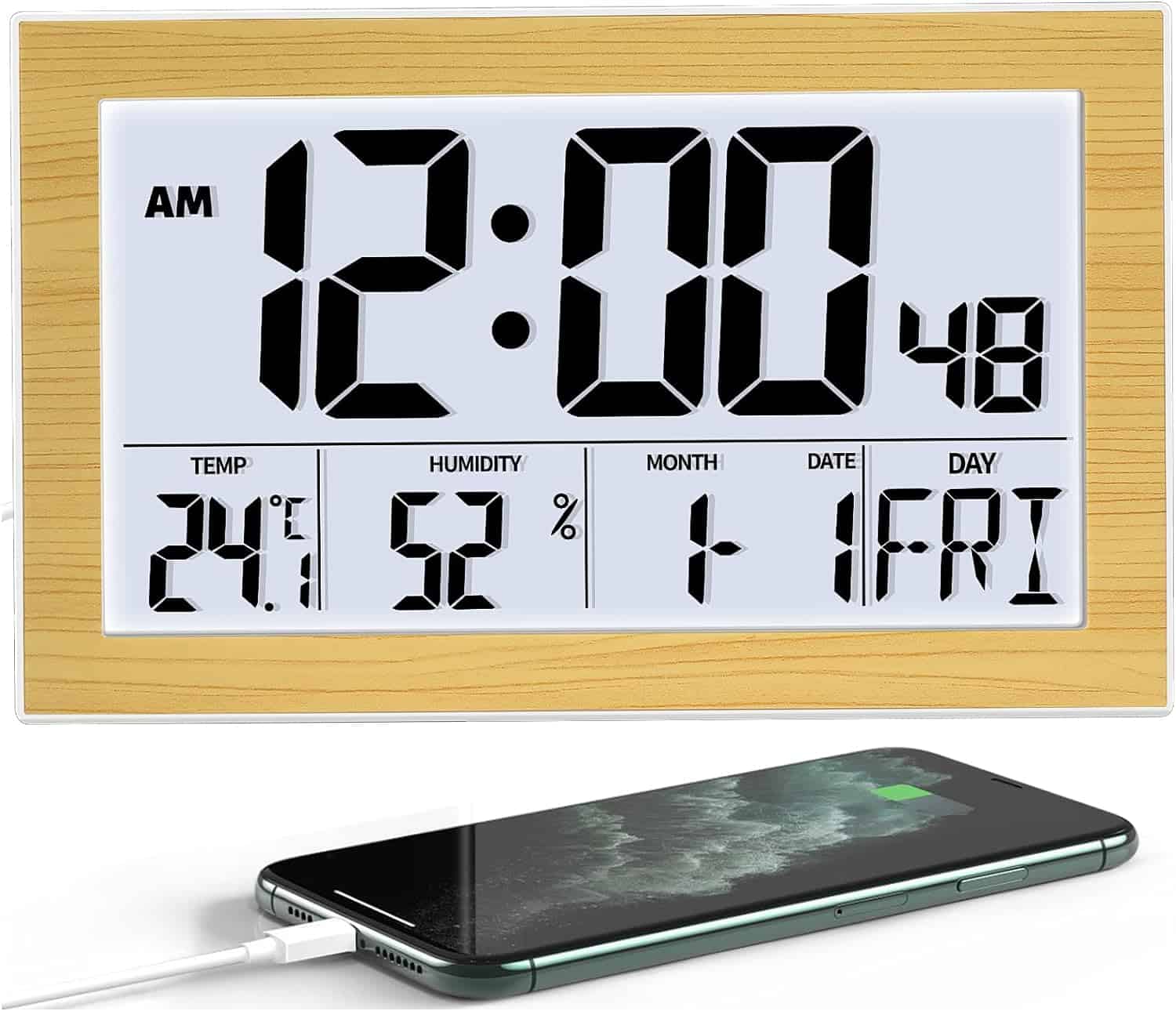
These clocks are designed to cater to the specific needs of dementia sufferers, offering features that address memory, cognitive, and visual impairment. For those in the early stages of dementia, these clocks can assist individuals in keeping track of the time and date. This helps to maintain a semblance of routine and independence
Dementia clocks are essential dementia care accessories. As a daily living aid, dementia clocks can assist seniors with managing their medication schedules.
For instance, some models even offer medication reminders. This feature avoids the necessity of constant care or living in a care home, therefore enabling dementia sufferers to keep track of their daily tasks.
By providing dementia patients with a tool that supports their independence, healthcare professionals and local governments managing dementia care can concentrate on other aspects of care. Dementia clocks also assist in monitoring visitor behaviour in care homes. This provides staff and residents with a clear picture of the day’s schedule.It’s important to note that this applies to disabled people and those diagnosed with Alzheimer’s.
In addition, checking the retailer’s delivery information and customer service will ensure a smooth purchasing process. Many dementia clocks are also eligible for VAT relief, making them a cost-effective product.
Traditional clocks with a clear clock face are available, providing a familiar and easy-to-understand display. Alternatively, digital clocks provide a more modern approach with various features like alarms and reminders.
Wall clocks are another option, offering a large and clear display that can be seen from a distance. These are ideal for care homes, or households with multiple dementia sufferers. Day clocks are also a popular choice, displaying the time and the day of the week. For those struggling with the concept of time, these are particularly helpful.
For those with more advanced dementia who have difficulty remembering dates, calendar clocks provide the time and day and the date and month. On the other hand, Alarm clocks are also available, with some models offering medication reminders.
Furthermore, speaking clocks announce the time at the touch of a button. This is specifically beneficial for people with severe visual impairment, as well as those who might find it challenging to read a clock face.
Firstly, a dementia clock should have a clear, easy-to-read display. This is particularly beneficial for dementia patients who are visually impaired. The clock face should display the time, day, and date.
If the intended user is an elderly person or someone with Alzheimer’s disease, it is important to consider a model with a medication reminder. This feature will help individuals to take their medication, making it a helpful aid in managing their health.
Some dementia clocks offer a night-time dimming feature, meaning that it reduces the display’s brightness during the night. This can be especially helpful for people who might be disturbed by a bright light during the night.
Finally, take into account the retailer’s customer service and delivery information. Selecting a retailer that offers excellent customer service and clear delivery information is ideal, consequently ensuring a simple purchasing process.
Remember to introduce the clock gradually, explaining its functions and benefits. This clock can support them in keeping track of time, remembering important tasks, and maintaining a sense of independence.
It’s helpful to put a dementia clock where your loved one spends most of their time, allowing them to easily refer to it throughout the day. It’s also vital to regularly check the clock to ensure it works correctly.
Many Alzheimer’s Society branches offer information on how to use these clocks, offering an indispensable household aid for those with Alzheimer’s disease.
You can relax knowing that your loved one has a tool to help them navigate their daily routines. Not only does a dementia clock improve the day-to-day life of your loved one, but it also provides you with necessary peace of mind.
UK Care Guide is really proud to have been featured on some of the UK’s leading websites.

















Jane is one of our primary content writers and specialises in elder care. She has a degree in English language and literature from Manchester University and has been writing and reviewing products for a number of years.
